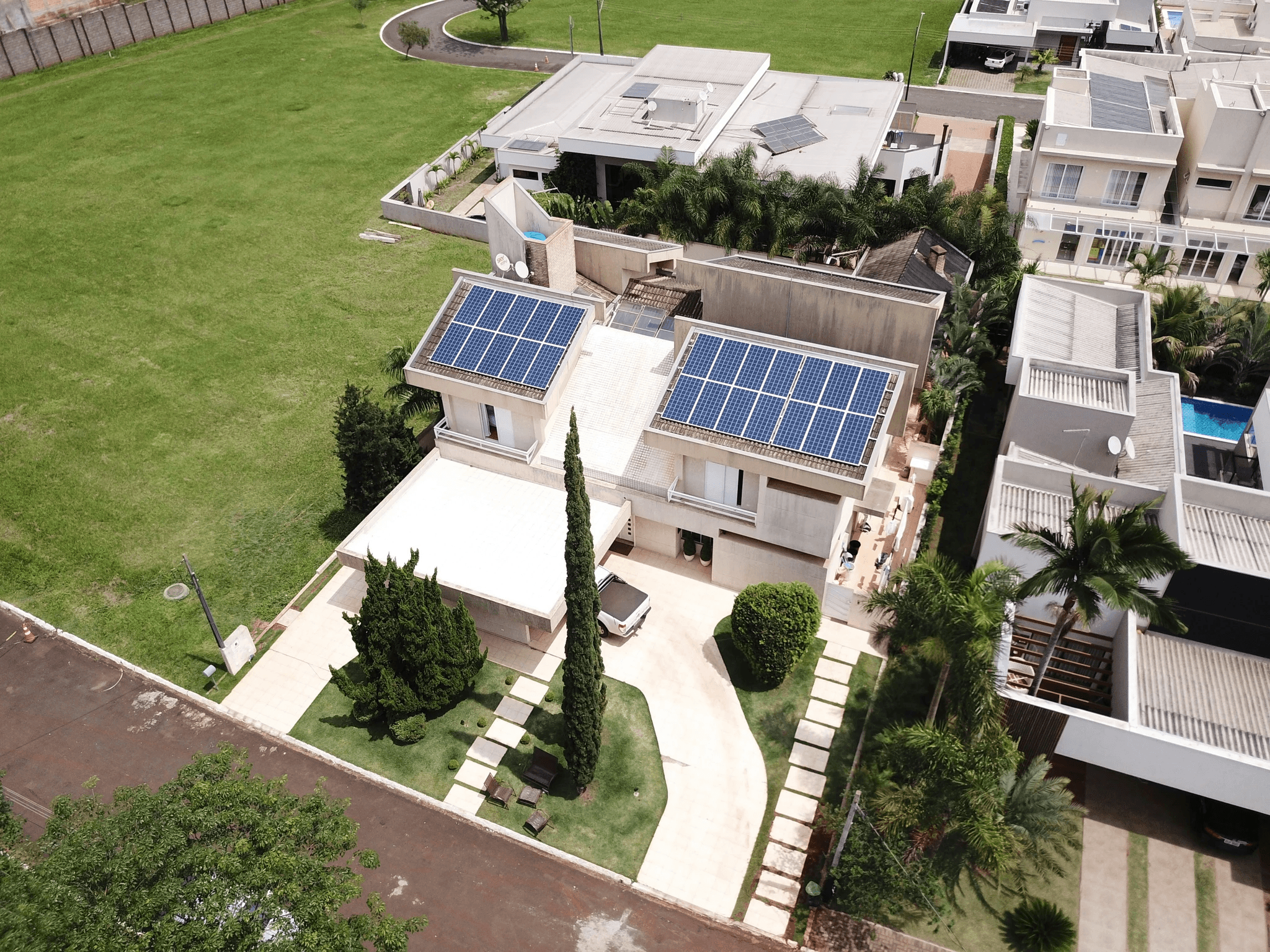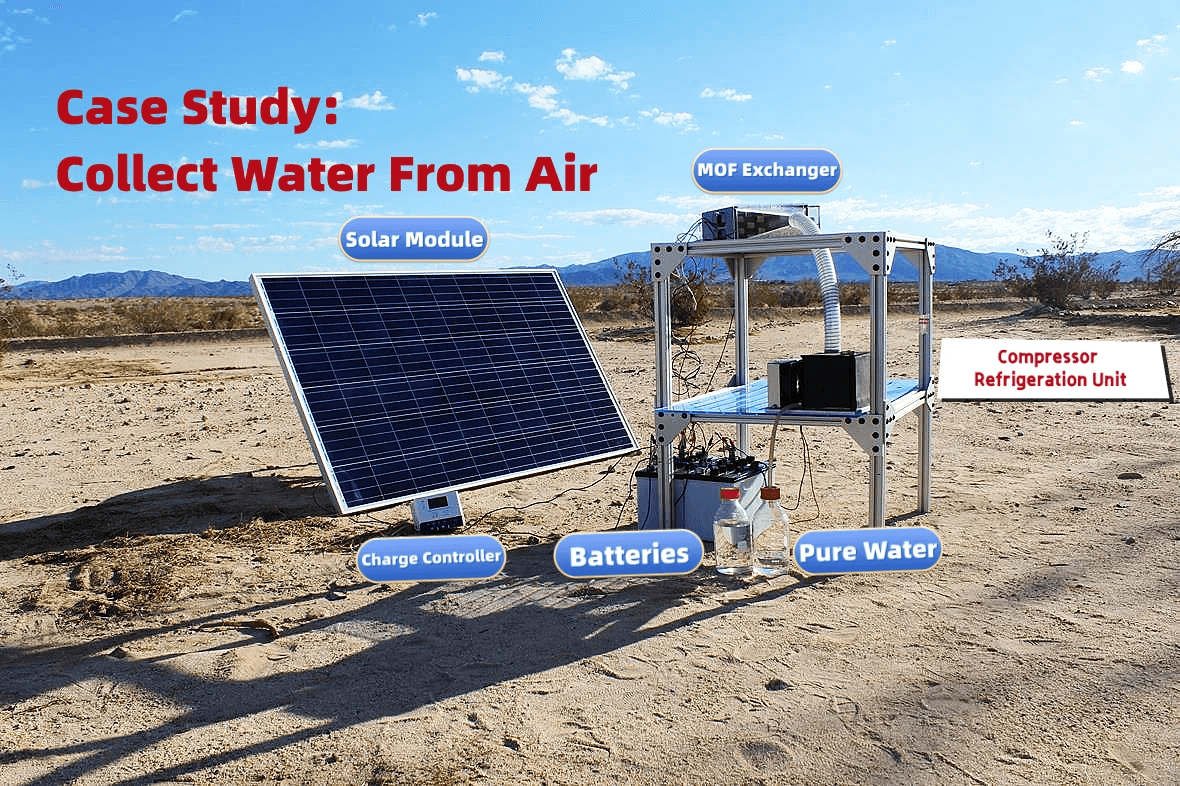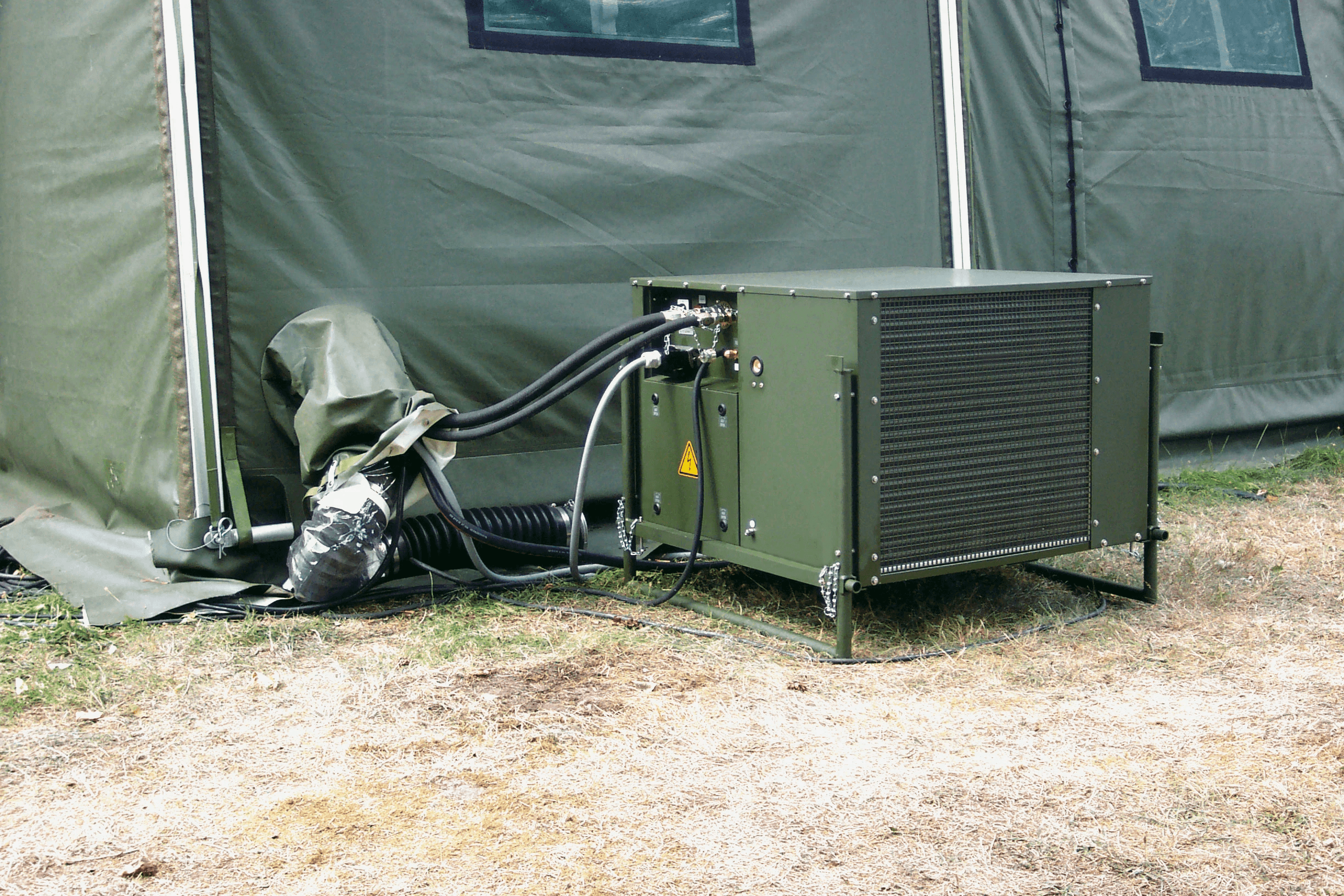Introduction

"RIGID is a miniature refrigerated compressor innovation leader in China. We keep looking for novel solutions in compact and portable cooling systems. We capture new technologies in mobile and compact cooling systems."
In a world increasingly conscious of energy consumption and environmental impact, solar power is emerging as a smart solution to cool our spaces effectively. Whether you're looking to beat the summer heat or keep your workspace comfortable, the advent of solar-powered air compressors and air conditioning systems is making it easier than ever. But you might be wondering: do solar-powered air conditioners exist? And can you run an air compressor on solar power? Let’s dive into this refreshing topic!
Solar Power: Cool Your Space Smartly
Solar power has transformed from being a niche energy source to a mainstream solution for many households and businesses seeking sustainable options. With advancements in technology, cooling solutions powered by the sun are not only feasible but also efficient, offering significant savings on utility bills. The innovation behind solar operated air compressors is paving the way for eco-friendly alternatives that reduce reliance on traditional electricity sources.
The Rise of Solar Operated Air Compressors
The popularity of solar operated air compressors has surged as more people recognize their potential for reducing energy costs while minimizing carbon footprints. These devices harness sunlight to provide reliable cooling without straining the electrical grid, making them ideal for remote locations or off-grid living. As consumers become more environmentally aware, interest in how to run an air compressor on solar power continues to grow.
Do Solar-Powered Air Conditioners Exist?
Yes, indeed! Solar-powered air conditioners are becoming increasingly available and are designed to utilize renewable energy effectively while keeping your space comfortable year-round. With various models now on the market, many consumers find themselves asking: will a 1500 watt inverter run an an air compressor or AC unit? This growing trend toward sustainable cooling solutions raises another question: what is the most energy efficient air compressor available today?
Understanding Solar-Powered Air Conditioners

Solar-powered air conditioners are becoming increasingly popular as people seek eco-friendly alternatives to traditional cooling systems. These innovative units harness the sun's energy, making them an excellent choice for those looking to reduce their carbon footprint while keeping their spaces cool. But how exactly do they work, and what benefits do they offer?
How They Work
At the core of solar-powered air conditioners is a straightforward principle: they convert sunlight into electricity, which powers the cooling system. Most models utilize photovoltaic (PV) panels to capture sunlight and convert it into usable energy, which can either directly power the air conditioner or charge batteries for later use. This process raises an interesting question: Do solar-powered air conditioners exist? The answer is a resounding yes! They are designed specifically to operate efficiently in sunny conditions, providing a sustainable way to cool your space.
Benefits of Solar AC Systems
The advantages of solar AC systems extend beyond just environmental benefits; they also promise significant savings on energy bills over time. By harnessing renewable energy from the sun, users can drastically reduce or even eliminate their reliance on grid electricity for cooling needs. Additionally, using a solar powered air compressor can enhance efficiency further by utilizing excess energy produced during peak sunlight hours.
Beyond cost savings and eco-friendliness, solar AC systems often require less maintenance than traditional units since they have fewer moving parts and rely on natural resources rather than fossil fuels. This makes them not only a smart investment but also a hassle-free option for homeowners seeking reliable cooling solutions.
Popular Models on the Market
As demand grows for these innovative cooling solutions, several popular models have emerged in the market that cater to various needs and budgets. Brands like Gree and Sunbelt have developed efficient solar-powered air conditioners that come equipped with advanced features such as programmable thermostats and remote control capabilities—perfect for those who want convenience alongside sustainability.
For those wondering about performance specifications, many modern units boast impressive Energy Efficiency Ratios (EER), ensuring you get maximum cooling with minimal energy consumption—an important factor when considering what is the most energy efficient air compressor available today! With so many options out there, it's easier than ever to find a model that fits your specific requirements while contributing positively to our planet.
Can You Run an Air Compressor on Solar Power?

When pondering the question, Can you run an air compressor on solar power?, the answer is a resounding yes! However, it's essential to consider several factors before diving into this eco-friendly venture. From understanding energy requirements to selecting the right components, let's break down what you need to know about using a solar-powered air compressor.
Key Considerations
Before investing in a solar-operated air compressor, you should evaluate your energy needs and usage patterns. Air compressors can draw significant power, especially during startup; hence, knowing your model's wattage is crucial. Additionally, consider how often you'll use it and whether you have sufficient sunlight exposure at your location—after all, sunny days are when your solar panels shine brightest!
Another key consideration is battery storage. If you're planning to use your solar-powered air compressor during non-sunny hours or in cloudy conditions, having a reliable battery system will ensure you never miss a beat. Lastly, check local regulations regarding solar installations; some regions have specific guidelines that could impact your setup.
Solar Panel Sizing
Sizing your solar panel system correctly is paramount for efficiently running an air compressor on solar power. The first step is to calculate the total wattage required for your specific model; this includes both operating and starting wattage demands. Once you've identified these figures, you can determine how many panels you'll need based on their output capacity.
For instance, if your air compressor requires 1500 watts of power and operates for several hours daily, you'll want enough panel capacity to meet that demand consistently. A common approach involves oversizing slightly to account for inefficiencies and potential shading issues throughout the day—better safe than sorry!
Ultimately, investing time in proper sizing will pay off by ensuring that your solar-powered air compressor runs smoothly without interruptions.
Inverter Requirements
Inverters play a crucial role when using a solar-powered air compressor since they convert DC electricity generated by solar panels into AC electricity used by most appliances. So naturally, one might wonder: Will a 1500 watt inverter run an air compressor? The answer depends on both the inverter's continuous output rating and its surge capability during startup.
Choosing the right inverter goes beyond just matching wattage; consider features like pure sine wave output for sensitive equipment or built-in protections against overloads and overheating. This ensures optimal performance while maintaining safety standards across all devices connected to it.
Efficiency matters too! An efficient inverter minimizes energy loss during conversion processes—so look for models with high efficiency ratings if you're serious about maximizing the potential of your solar-operated air compressor.
The Role of Inverters in Solar Power Systems

Will a 1500 Watt Inverter Run an Air Compressor?
The question of whether a 1500 watt inverter will run an air compressor often pops up among solar enthusiasts. The answer largely depends on the specific air compressor's power requirements, particularly its starting watts versus running watts. Many air compressors have high starting wattage due to the initial surge needed to kickstart the motor, so while a 1500 watt inverter might suffice for some smaller models, larger or more powerful compressors may demand more juice than this inverter can provide.
Choosing the Right Inverter
When selecting the right inverter for your solar-powered air compressor setup, it's essential to consider both continuous and surge wattage ratings. Look for inverters that provide enough headroom above your compressor's requirements to ensure reliable operation without tripping the system. Additionally, features such as pure sine wave output can enhance compatibility with sensitive electronics like those found in modern solar-powered air conditioners.
Efficiency and Performance
Efficiency is key when it comes to maximizing your investment in a solar-operated air compressor system. An efficient inverter will minimize energy loss during conversion from DC to AC, allowing you to get more out of each sunny day’s worth of energy production. Furthermore, performance metrics such as total harmonic distortion (THD) should be monitored since lower THD percentages indicate cleaner power output—crucial for maintaining optimal operation of devices like solar-powered air conditioners.
The Most Energy Efficient Air Compressor Options

When it comes to finding the most energy-efficient air compressor options, the market has some standout models that not only save power but also help you embrace sustainability. With the rise of solar technology, many consumers are asking, Can you run an air compressor on solar power? The answer is a resounding yes, and several brands have taken this into account by designing compressors that can operate efficiently with solar energy.
Top Brands and Models
Among the top brands in energy-efficient air compressors is Ingersoll Rand, known for its durable and reliable products. Their models often feature advanced technology that minimizes energy consumption while maximizing output. Another notable mention is California Air Tools, which has developed a range of ultra-quiet and lightweight compressors perfect for both home and professional use—ideal if you're considering a solar-operated air compressor.
If you're interested in exploring more eco-friendly options, look into brands like Makita or DeWalt. They offer portable solutions that can be easily paired with solar panels to create an efficient setup. With so many choices available today, it's easier than ever to find a model that meets your needs while keeping your carbon footprint low.
Comparing Power Consumption
Understanding power consumption is crucial when evaluating which air compressor suits your needs best. Factors such as motor size and efficiency ratings play significant roles in determining how much electricity each model will use—especially important if you're considering whether Will a 1500 watt inverter run an air compressor? Many modern compressors boast lower amperage draw compared to older models.
For instance, some of the most energy-efficient units consume less than 10 amps during operation, making them ideal candidates for pairing with solar power systems. When comparing these models side by side, you'll notice significant differences in their wattage requirements—some even come equipped with features designed to optimize performance while using minimal energy.
Features That Boost Efficiency
Several features can significantly enhance the efficiency of your chosen air compressor, making it more compatible with solar-powered systems or simply reducing overall electricity usage. Look for models equipped with variable speed motors; these adjust their output based on demand rather than running at full capacity all the time—an essential trait if you want to maximize your investment in renewable energy sources.
Additionally, consider compressors with integrated thermal protection systems that prevent overheating during extended use; this not only extends their lifespan but also keeps them running efficiently under varying conditions. Lastly, innovative designs such as oil-free pumps often contribute to lower maintenance costs and improved performance over time—perfect for those wondering about sustainable solutions like do solar-powered air conditioners exist?
RIGID DC Air Conditioners: A Game Changer

In the realm of energy-efficient cooling solutions, RIGID DC air conditioners are making waves, particularly when it comes to applications like electronics cooling. These systems utilize direct current (DC) technology, which not only enhances efficiency but also aligns perfectly with renewable energy sources such as solar power. With the increasing interest in eco-friendly alternatives, many are asking, Do solar-powered air conditioners exist? The answer is a resounding yes, and RIGID DC units are at the forefront of this innovation.
Applications in Electronics Cooling
One of the most significant applications for solar powered air compressors and RIGID DC air conditioners is in electronics cooling. These systems are essential for maintaining optimal temperatures in data centers, telecommunications equipment, and other sensitive electronic devices that generate heat during operation. By leveraging solar energy, businesses can reduce their reliance on traditional power sources while ensuring that their critical equipment remains cool and operational.
In addition to data centers, these advanced cooling solutions are increasingly being utilized in electric vehicle charging stations and renewable energy facilities. As more industries look for sustainable ways to manage heat dissipation from their technology, the question arises: Can you run an air compressor on solar power? The answer is yes—solar operated air compressors can effectively support various applications when paired with efficient cooling systems like RIGID DC units.
Key Components Explained
Understanding how RIGID DC air conditioners operate involves examining their key components: the compressor, evaporator coil, condenser coil, and fan assembly—all designed for maximum efficiency. Unlike traditional AC systems that rely heavily on alternating current (AC), these units utilize a simplified design that minimizes energy loss throughout operation. This streamlined approach not only boosts performance but also makes them compatible with solar power setups.
A crucial element in these systems is the inverter; many wonder if a 1500 watt inverter will run an air compressor efficiently. While it depends on specific models and requirements of both the inverter and compressor system used together, generally speaking, a properly sized inverter can handle most small-scale operations effectively when powered by solar panels.
Advantages Over Traditional Systems
RIGID DC air conditioners boast several advantages over traditional AC systems that make them a compelling choice for environmentally conscious consumers. First off, they typically consume less electricity than their counterparts—making them one of the most energy efficient air compressor options available today. By utilizing direct current from solar panels directly without converting it to alternating current first through an inverter (which can waste some energy), these units operate at peak efficiency.
Moreover, because they work seamlessly with renewable energy sources like solar power installations or even standalone solar powered air compressors setups—they contribute significantly to reducing carbon footprints while lowering utility bills over time. As we continue to embrace eco-friendly solutions across various sectors—from residential homes to commercial enterprises—the potential for widespread adoption of RIGID DC technology remains bright.
Conclusion
In a world increasingly focused on sustainability, the future of solar-powered cooling looks bright. With advancements in technology, solar-powered air conditioners are becoming more efficient and accessible, making them a viable option for homeowners and businesses alike. The question Do solar-powered air conditioners exist? is no longer just a curiosity; they are here to stay, paving the way for greener alternatives in managing indoor climates.
The Future of Solar-Powered Cooling
The trend toward solar-operated air compressors and other cooling solutions is expected to grow as awareness of climate change increases. As energy costs rise, consumers are searching for ways to reduce their carbon footprint while maintaining comfort in their living spaces. Innovations in solar technology will continue to enhance the performance of systems that harness renewable energy, making it easier than ever to ask, Can you run an air compressor on solar power? and get a resounding yes!
Investing in Solar for Long-Term Savings
Investing in solar-powered systems can lead to significant long-term savings on energy bills. While the initial setup cost may be daunting, the return on investment becomes apparent over time as reliance on traditional power sources decreases. For those wondering Will a 1500 watt inverter run an air compressor?, understanding energy consumption patterns becomes crucial when planning your investment strategy—choosing efficient models can maximize savings.
Embracing Eco-Friendly Solutions
Embracing eco-friendly solutions like solar-powered air compressors not only helps individuals save money but also contributes to a healthier planet. By opting for the most energy-efficient air compressor options available today, consumers can reduce their environmental impact while enjoying modern conveniences. As society shifts towards sustainability, choosing renewable energy sources will become less of an option and more of a necessity.